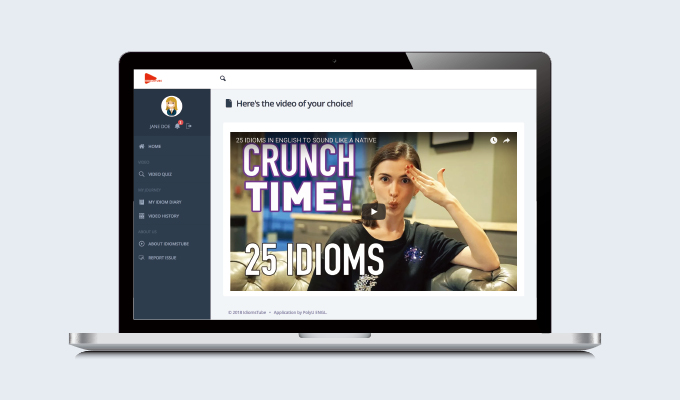With the rise of the internet, popular media is one of the most preferred self-directed English learning strategies. Yet learners generally fail to grasp the noteworthy language features in the online television programmes and monitor their own learning progress systematically. It is also difficult for learners to identify those programmes that best suit their levels.
In view of this, Dr Phoebe Lin at the Department of English conducted a series of research on online television programmes and social media to collect data and categorise the authenticity of vocabulary, voice speed and difficulty of phraseology. Based on this information, her research team created the “IdiomsTube” for online self-directed English phraseology learning.
Not only could this software automatically generate a series of phraseology learning tasks for any learner-chosen YouTube videos, it could also monitor the learner’s progress and provide personalised learning plans. The learning activities include pre-learning exercises with usage and examples of idioms, post-video cloze exercises, learning progress summary and review, as well as recommended online television programmes etc.
Going forward, future work will add more types of learning activities such as pronunciation practice. Dr Lin also hopes to extend the software to support other forms of internet media to further improve the guidance provided to learners and enhance the effectiveness of self-directed language learning.
